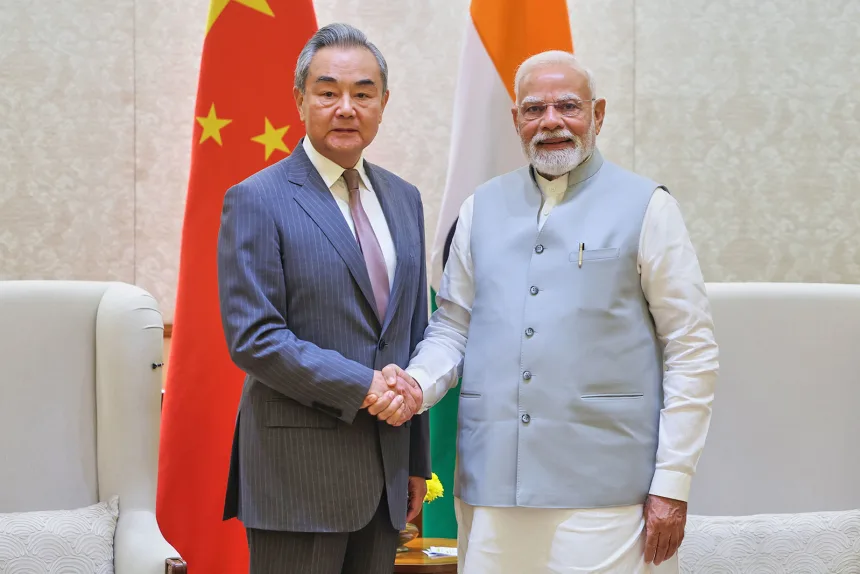India has test-fired a homegrown ballistic missile that can carry nuclear warheads far into Chinese territory, just days before Prime Minister Narendra Modi travels to Beijing for his first official visit in years.
The Agni-5 was launched in India’s eastern Odisha state and “validated all operational and technical parameters,” the country’s defense ministry said in a statement on Wednesday, reports CNN.
The missile has a range of more than 5,000 kilometers (3,100 miles), according to the Center for Strategic and International Studies Missile Defense Project. That puts India’s rivals like China and Pakistan well within range of the weapon.
India and China are locked in a fierce battle for influence across the Asia-Pacific. Both have navigated a frosty relationship after deadly clashes at their shared Himalayan border in 2020 pushed the two further apart than at any time in decades.
India is playing catch-up as the People’s Liberation Army expands its arsenal and tensions continue to simmer along their disputed border. A report published in June by the Stockholm International Peace Research Institute (SIPRI) estimates that China now has around 600 nuclear warheads, while India has 180.
The Agni-5 test comes on the heels of a visit to New Delhi by Chinese Foreign Minister Wang Yi, a trip that set the stage for Modi’s own late-August visit to China for a summit of the Shanghai Cooperation Organization (SCO), a security grouping that includes Russia and Pakistan.
Ties have shown signs of warming since Modi met Chinese leader Xi Jinping on the sidelines of the BRICS summit in Russia last October.
India and China have agreed to resume direct commercial flights cancelled in 2020 during the Covid-19 pandemic, Beijing recently agreed to reopen two pilgrimage sites in western Tibet to Indians for the first time in five years, and both started re-issuing tourist visas for each other’s citizens.
“Stable, predictable, constructive ties between India and China will contribute significantly to regional as well as global peace and prosperity,” Modi said in a statement Tuesday after his meeting with Wang. He also acknowledged his impending trip for the SCO summit in Tianjin.
India’s relationship with the US, meanwhile, has been strained after President Donald Trump threatened New Delhi with 50% tariffs as punishment for its purchases of Russian oil.
Washington, which has been courting India as a strategic counterweight to China, is inadvertently pushing the two Asian giants closer together with its economic policies, analysts say.
The Agni-5 missile is also part of India’s defense strategy against nuclear-armed rival Pakistan.
The two neighbors engaged in a brief but deadly conflict earlier this year – their worst in decades – with both sides striking deep into the other’s territory. The conflict sparked an international diplomatic scramble to stop hostilities between two nuclear armed powers escalating further.
Pakistan’s Prime Minister Shehbaz Sharif is also expected in Tianjin for the SCO meeting. Over the years, China has built a strong partnership with Pakistan, not only through Xi’s Belt and Road infrastructure project but also by becoming its main arms supplier, providing more than 80 percent of the country’s imported weapons, according to SIPRI.


